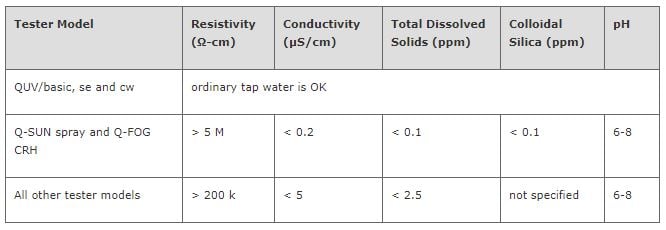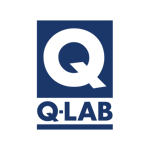Based on internal research testing and consultation with water purification experts, Q-Lab has harmonized the requirements for all QUV, Q-SUN, and Q-FOG tester models, with only two exceptions (Q-SUN spray, QUV non-spray, and Q-FOG CRH models), as shown below. These guidelines are intended to prevent water spotting on test specimens, buildup of mineral scale deposits, and corrosion of test chambers and plumbing systems.
Additionally, Q-Lab strongly recommends the use of water purification systems that use reverse osmosis in addition to deionization (RO/DI systems). These systems are not expensive or difficult to operate, and are effective at removing colloidal silica that can cause water spotting on some test specimens. An RO/DI system can be more effective and economical over time than a two-stage deionization system with a Type 1 anion resin, which Q-Lab previously recommended.
In addition to the water purity specifications presented above, Q-Lab also recommends that customers use a water recirculation system wherever possible, to avoid standing water.
For more information, please see Q-Lab’s Technical Bulletin LW-6049 “The Importance of Water Purification for Weathering and Corrosion Testers.” This document is available on q-lab.com and includes detailed information on our research on water purity.

